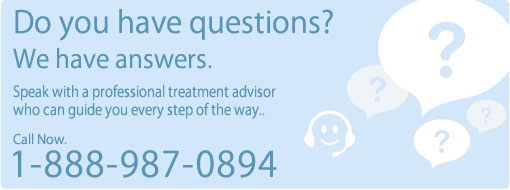Navigation

Help Me Find a Drug Rehab Center
Commonly Abused Drugs
An addiction can develop when a person uses drugs to satisfy a need or fill a void in his life. People start using these substances just to calm them down when they are stressed or even perk them up when they're feeling down. When this drug use turns into a crutch or a means of coping with life, it then becomes a problem -- an addiction.
The majority of individuals who use prescription medications use them responsibly. However, when abused, these drugs can cause severe medical emergencies. Prescription drugs, including opioids, stimulants and CNS (central nervous system) depressants, when used non-medically can give way to addiction.
Here are 6 drugs that are most commonly abused by people around the world
1.Opioids
Opioids are most known for causing drug dependency. Substances falling within the scope of this class (sometimes referred to as narcotics) of drugs are codeine, morphine and other related medicines. Morphine is typically utilized before or after surgery to relieve a person's pain levels. Codeine is prescribed in cases of mild pain. Other opioids prescribed as pain medications include- Oxycodone, hydrocodone, propoxyphene, meperdine and hydromorphone.
2.CNS or central nervous system depressants
These types of anti-depressants slow the brain function. Several CNS depressants can function as an anesthetic in higher doses. Some of these types of depressants are sedatives and tranquilizers. CNS drugs can be divided into two groups. These groups are determined by their pharmacology and chemistry:
- Barbiturates- These are used in treating stress, anxiety and sleeplessness.
- Benzodiazepines- They are prescribed for acute anxiety and panic attacks.
3.Cocaine
Cocaine is a stimulant drug that is often known as crack. No matter how often the drug is used or even how it is utilized, a cocaine user can suffer from acute cardiovascular and cerebrovascular emergencies just like a heart attack or a stroke. These side effects could be fatal. Deaths due to cocaine are usually the result of cardiac arrest or a convulsion then respiratory arrest.
4.Heroin
Heroin is another drug that's addictive. It comes from morphine and in most cases appears as a powder that's brown or white. A few of the street names for this drug are junk, ska or smack. Unfortunately, heroin is a major problem for most parts of the world.
Just like any other drug, heroin also has serious health effects including death from overdose, unexpected abortion, veins collapse, and, specifically in users who get this by injection, diseases that are contagious like hepatitis as well as HIV / AIDS.
5.Methamphetamine
Methamphetamine is considered a stimulant that is addictive and closely related to amphetamines. This drug lasts longer and produces results that are more dangerous for the body's central nervous system. The chances of addiction and misuse are high for this drug.
6.Marijuana
Many people do not consider marijuana a harmful drug. They want Marijuana to be included in the list of legal drugs. This use of this illegal drug is most common. After alcohol, marijuana is also the most popular drug amongst juniors. Furthermore, marijuana can be much more concentrated in what is called hashish, which is Marijuana in resinous form.
The smoke of marijuana has a clear and pungent smell, typically an aroma that is sweet and sour. Some individuals compare the smell of Marijuana to that of a burning rope.
Conclusion
It is a common misconception that when an addict has completed his treatment program, he is somehow "cured" of his addiction. The truth is that the real work begins once the treatment program has ended. Recovery is a lifelong process and one that should not be taken lightly. This is why avoiding the relapse is one of the most challenging facets of the recovery process and one that addicts of all kinds struggle with.
Recovering from a drug habit is not an easy. This is why using a good support system is important. When the urge becomes almost unbearable, knowing that you have a supportive family or group of friends can mean the difference between staying clean and relapsing. A small phone call can remind you of the reason why you chose to take this long, difficult journey to sobriety. This wonderful group of people act as safety net for you, offering reassurance, guidance and a shoulder to lean on.
Category
- Drug and Alcohol Rehab Services
- Drug and Alcohol Rehabs
- Drug Detox / Alcohol Detoxification
- Methadone Detox
- Group Homes
- Hospital Inpatient Programs
- Outpatient Rehabs
- Partial Day Rehabs
- Residential Short-Term Rehabs (Less Than 30 Days)
- Residential Long-Term Rehabs (30 Days or More)
- Adolescent / Teen Rehab Centers
- Dual Diagnosis
- HIV / Aids Treatment Services
- LGBT Rehabs
- Senior Rehabs
- Rehabs for Expectant Mothers
- Women - Treatment Services
- Men - Substance Abuse Treatment
- Residential Beds Parents w/ Children
- Dui/Dwi Clients
- Criminal Justice Client Rehabs
- Self Pay
- Medicaid Accepted
- Medicare Accepted
- State Insurance
- Private Health Insurance
- Rehabs that Accept Tricare
- Access To Recovery Voucher
- Sliding Fee Scale Accepted
- Rehabs with Payment Assistance
- Hearing Impaired Rehab Services
- Spanish Treatment Services
- Other Languages